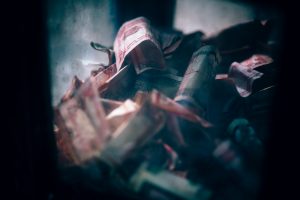 It used to be that currency creation and distribution was the sole responsibility of state agencies, such as the central bank. However, the advent of non-official and bespoke currencies has meant that there are many people who are inadvertently breaking the law. The definitions of currency have expanded so much that the law sometimes appears to be contradictory. Some of the industries that are affected in Chicago include staffing agencies and factories. Moreover, there are some online currencies such as Bitcoin that lie outside the traditional strictures of currency controls. In the worst case scenario, there is an actual factory of illegal tender. Some of these crimes can lead to significant terms of imprisonment.
It used to be that currency creation and distribution was the sole responsibility of state agencies, such as the central bank. However, the advent of non-official and bespoke currencies has meant that there are many people who are inadvertently breaking the law. The definitions of currency have expanded so much that the law sometimes appears to be contradictory. Some of the industries that are affected in Chicago include staffing agencies and factories. Moreover, there are some online currencies such as Bitcoin that lie outside the traditional strictures of currency controls. In the worst case scenario, there is an actual factory of illegal tender. Some of these crimes can lead to significant terms of imprisonment.
Key Ingredients of the Crime
The first criterion relates to how the currency was manufactured or distributed. As stated earlier, the expectation is that only the state can make currency. It is for this reason that the federal agencies might be involved since states do not currently have the right to make currency. The case law indicates that currency schemes are sometimes considered to be a much more serious offense than counterfeiting of even forgery. Some of the constituent aspects of the crime are legislated under the instrument number 720 ILCS 5/17-0.5, but that instrument also talks about other forms of deception and fraud which may not necessarily relate to currency schemes.
 Chicago Criminal Lawyer Blog
Chicago Criminal Lawyer Blog


